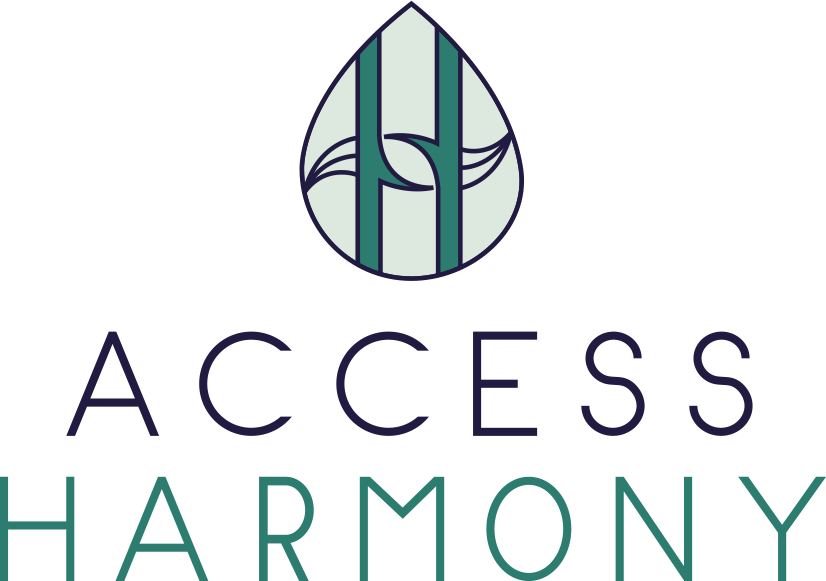I provide three main types of services:
Many people choose weekly 50-minute telehealth counseling sessions. Sometimes shorter, longer, or retreats/intensives are a better fit for your goals.
I specialize in working with autistic and/or ADHD adults who want support that does not ascribe to “deficit” models around ways of being in the world. I affirm self-identification in whatever way is right for you; I believe in a world where identities are honored rather than gatekept (or stigmatized). My approach is neurodiversity-affirming, meaning I see your brain and ways of being as unique, valid, and valuable. I believe that the root of most distress is in a mismatch between a person and their environment, rather than a “problem” within an individual.
Neurodiversity affirming means I don’t “treat” autism, ADHD, or other forms of neurodivergence. There is no one right body or way to be in the world. Instead, I focus on understanding your unique needs, bringing transparency to the barriers that might be impacting or limiting your progress toward your goals, and helping you navigate a world that does not reflect ease of access for neurodivergent and disabled people.
There is an overlap between Counseling and Peer work. Both are therapeutic in that they are effective ways of alleviating distress, feeling supported, and making progress towards your goals. In both ways of working together, you are in charge. You define your goals and the pace of our work. I witness and support you, reflecting what I see, and offering tools that may help you identify barriers, shift old patterns, and make progress. Not all challenges or goals are suited to approach solely through Peer work; it is possible that I may ask you to see a therapist or other mental health professional while we are engaging in regular peer sessions. I am happy to collaborate with other professionals or people in your life who are part of your support network.
In both counseling and peer work, it is fine for you to ask questions about me or my lived experience; it is my job to hold appropriate boundaries (centering your best interests) in how I respond.
Both counseling and peer work may include telehealth (video or phone), text/ACA/written communication, in-person outdoor sessions, in-community sessions, intensives, or retreats. While I will make an effort to be available on short notice, as a solo practitioner I cannot provide “wraparound” emergency support.
Counseling qualifies for reimbursement under insurance. Insurance reimbursement typically requires a diagnosis associated with your care. This is something we will discuss after several sessions, including if you have an existing diagnosis that feels accurate to you. I will not add a diagnostic code to your file without your consent. Often, neurodivergent people experience symptoms such as distress, anxiety, and depressed mood as a result of living in inhospitable, ableist environments and cultures.
I can provide counseling only to clients physically present in North Carolina at the time of our session.
The words “neurodivergent,” “autistic,” and “ADHD” are social and political constructs that mean a person’s way of perceiving and engaging with the world differs from what is commonly viewed as “normal” (or what has been listed in the Diagnostic and Statistical Manual with a code).
I specialize in working with people whose access needs are not built into their social and cultural context. I work most effectively with people who socialize and communicate through Autistic and ADHD cultureways.
Yes. I am skilled at helping multiple people see the biases and assumptions that may be contributing to dysfunctional patterns. My goal is to bring transparency to what’s not working, consider the power distribution in the system, and work with each group member to find mutually effective and respectful ways of interacting.
No, I can only offer one type of service to each person. If you’re not sure which one is right for you, let’s talk about your needs and figure it out together.
I offer a sliding scale from $80 – $145 for a 50-minute individual session. Sessions with two or more people, longer sessions, in-community services, and speaking engagements have their own rate structure.
I start with curiosity and openness, focusing on understanding your experiences and needs. My approach is collaborative and tailored to you, grounded in person-centered, power-informed theories. I believe that the roots of distress are in barriers to access, in a mismatch between a person and their environment, and in biased expectations regarding communication or social culture.
Please fill out the form with a brief message and I will get back to you. You may also reach out via the email listed below.
Hannah Shumaker

Hannah Shumaker (LCMHCA) is licensed to provide counseling in North Carolina and offers peer support and consulting services globally.
Copyright © 2025. All rights reserved.
